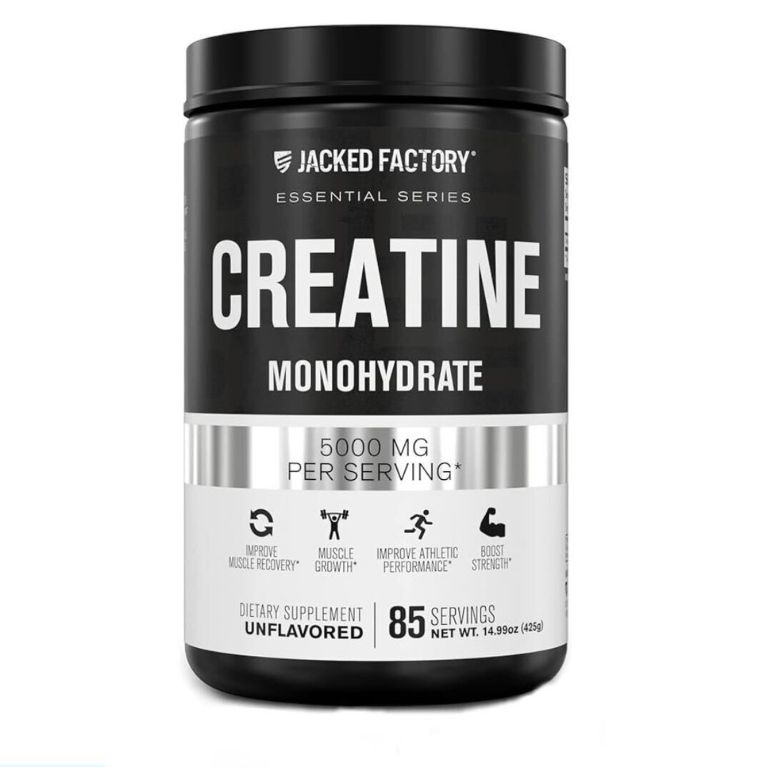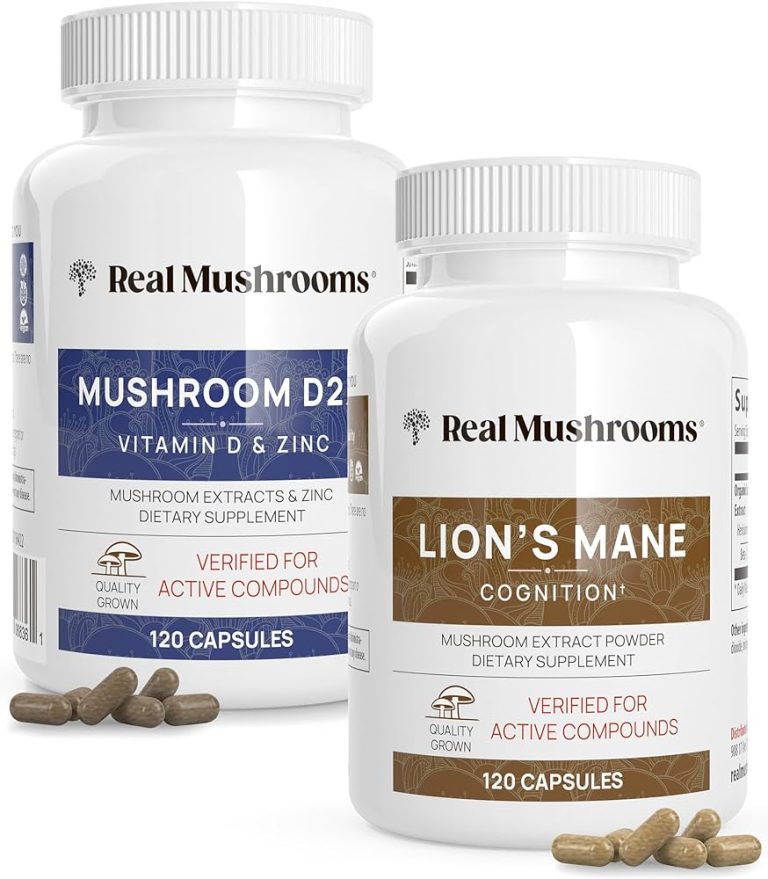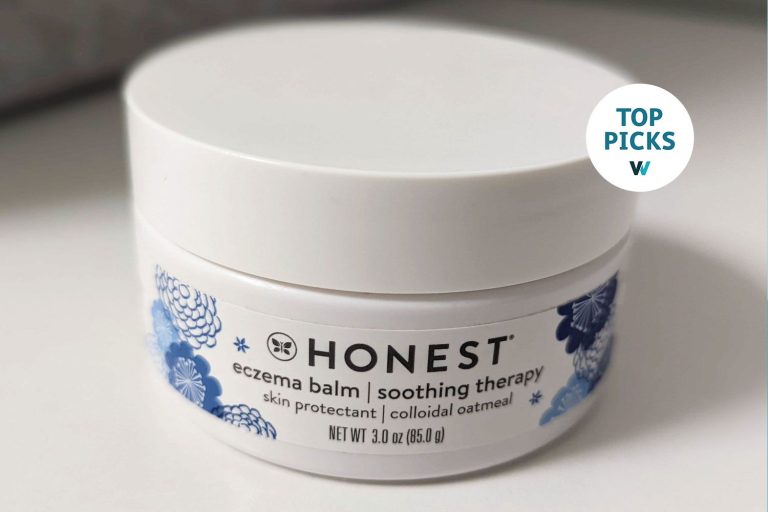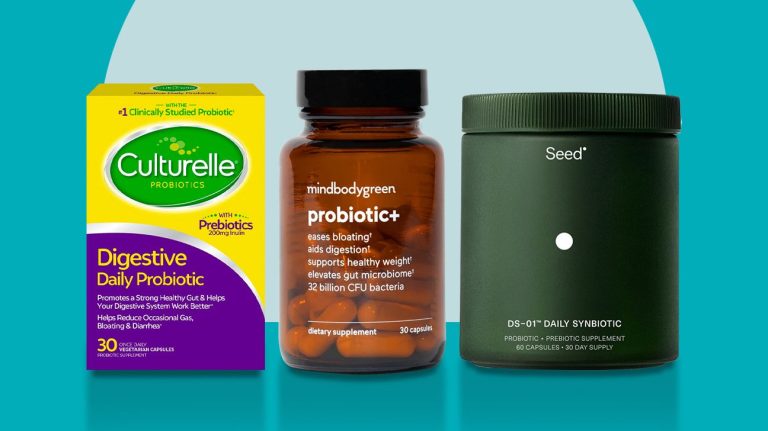9 Best Creatine Supplements for Optimal Muscle Growth and Performance
Want to maximize your muscle gains and enhance your workout performance? Creatine could be your secret weapon. It’s one of the most researched and effective supplements for boosting strength, increasing lean muscle mass, and improving exercise performance. But with so many options on the market, how do you choose the best one?
In this article, you’ll discover the 9 best creatine supplements for muscle growth. Whether you’re a seasoned athlete or just starting your fitness journey, finding the right creatine can make all the difference. Let’s dive in and find the perfect fit for your muscle-building goals.
Understanding Different Types of Creatine
To maximize muscle growth, it’s essential to choose the right type of creatine. Different types offer various benefits and absorption rates. Let’s explore some common forms.
Creatine Monohydrate
Creatine Monohydrate is the most researched and widely used form. This variant is known for its efficacy in increasing strength and muscle mass. Studies show it boosts performance in high-intensity workouts. Its cost-effectiveness and reliability make it a go-to option for many athletes.
Micronized Creatine
Micronized Creatine is similar to its monohydrate counterpart but has smaller particles. This form is easier to dissolve and absorb, reducing stomach discomfort. It enhances bioavailability, allowing quicker uptake and more efficient utilization by the muscles. Ideal for those who experience digestive issues with regular creatine monohydrate.
Creatine Ethyl Ester
Creatine Ethyl Ester is known for better absorption compared to monohydrate. It’s bound to an ester, which helps it penetrate cell membranes more efficiently. This leads to faster results and reduced bloating. However, some users report that it’s less effective for long-term muscle gains. Perfect for individuals seeking quick, short-term benefits.
Choosing the right type of creatine can significantly impact your workout results and muscle growth. These varieties offer different advantages, helping you find what suits your needs best.
Review of the Top 9 Creatine Supplements for Muscle Growth
Choosing the right creatine supplement can significantly boost your muscle growth and workout performance. Below, we’ve reviewed the top nine creatine supplements to help you make the best decision.
1. Optimum Nutrition Micronized Creatine Monohydrate Powder
Optimum Nutrition’s Micronized Creatine Monohydrate Powder offers muscle mass gains and improved strength. This product uses 100% pure Creatine Monohydrate and features smaller particles, which ensure better mixing and easier absorption. Incorporate it into your routine to enhance muscle recovery and power.
2. MuscleTech Platinum 100% Creatine
MuscleTech Platinum 100% Creatine supports increased muscle size and power output. It uses ultra-pure micronized creatine, making it more effective in delivering quick muscle energy during high-intensity workouts. This supplement is ideal if you want noticeable performance improvements and lean muscle mass.
3. BulkSupplements.com Creatine Monohydrate
BulkSupplements.com Creatine Monohydrate provides a highly versatile and cost-effective solution. It contains unflavored and lab-tested pure creatine monohydrate powder, ensuring you’re getting quality and purity. It’s perfect for those who prefer adding creatine to various liquids without compromising on taste.
4. Naked Creatine
Naked Creatine stands out for its clean, additive-free formula. This supplement uses only 100% pure micronized creatine monohydrate, promoting efficient absorption and muscle gain without any unnecessary fillers or additives. It’s ideal for fitness enthusiasts who prioritize natural supplements.
5. MyProtein Creatine Monohydrate
MyProtein Creatine Monohydrate ensures high potency and improved athletic performance. It offers a highly bioavailable form of creatine monohydrate, making it a reliable choice for enhancing muscle strength and endurance. This product is well-suited for individuals focused on optimal athletic progress.
6. Beast Sports Nutrition Creature Creatine Complex
Beast Sports Nutrition Creature Creatine Complex combines five different forms of creatine. This blend includes creatine monohydrate, creatine anhydrous, and others, providing multifunctional benefits such as faster absorption and prolonged muscle energy. Choose this for a comprehensive creatine solution.
7. BSN Micronized Creatine Monohydrate Powder
BSN Micronized Creatine Monohydrate Powder aids muscle recovery and power. It features micronized creatine, ensuring quick mixing and assimilation. If simplicity and effectiveness are your priorities, this product offers a valuable option for improved muscle performance.
8. MusclePharm Creatine Black
MusclePharm Creatine Black combines creatine monohydrate with other ingredients for enhanced muscle volumizing effects. This advanced formula aims to boost muscle gains, strength, and stamina, making it suitable for serious athletes looking for significant performance advancements.
9. Transparent Labs Creatine HMB
Transparent Labs Creatine HMB offers a powerful combination of creatine monohydrate and HMB (Beta-Hydroxy Beta-Methylbutyrate). This blend helps promote muscle growth while minimizing muscle breakdown, aiding both your performance and recovery. Opt for this if maximizing muscle gains is your goal.
Benefits of Using Creatine for Muscle Growth
Creatine provides numerous advantages, especially for those focused on building muscle and improving workout performance. Let’s dive into the key benefits.
Elevates Muscle Energy Levels
Increases ATP production, your muscles’ primary energy source during high-intensity activities. By supplying more ATP, creatine helps you push harder and longer in your workouts.
Speeds up Muscle Growth
Stimulates muscle protein synthesis, which is crucial for muscle repair and growth. Research shows that supplementing with creatine can lead to significant increases in muscle mass over weeks of consistent use. (Source: National Institutes of Health)
Enhances Muscle Recovery
Reduces muscle cell damage and inflammation, leading to quicker recovery times between workouts. Faster recovery means you can train more frequently, maximizing your muscle-building potential.
How to Use Creatine Supplements for Maximum Effect
Best Practices and Timing for Creatine Consumption
Taking creatine at the right time enhances its benefits. Most experts recommend consuming creatine either before or after your workouts. Taking it right after exercise could help with better absorption due to increased blood flow to the muscles. Also, pair creatine with carbs or proteins. This improves the uptake of creatine into your muscles, leading to more significant gains.
Spread out your intake during the day. If you prefer not to take it all at once, spreading out the dose can still be effective. For example, if your daily dose is 5 grams, you could take 2.5 grams in the morning and 2.5 grams post-workout.
Dosage Recommendations
Follow standard dosing guidelines for safety and effectiveness. Typically, the loading phase involves taking 20 grams of creatine daily, divided into 4 doses, for the first 5-7 days. This rapidly saturates your muscle creatine stores.
Transition to a maintenance phase after loading. Take 3-5 grams of creatine daily during the maintenance phase. This helps keep your muscles saturated without wasting the supplement.
Adjust dosages based on body weight and activity. Larger individuals or those with intense training regimens might need slightly higher amounts. Always start with the recommended dose and adjust as needed, monitoring your body’s response.
Potential Side Effects of Creatine Supplements
While creatine supplements can significantly enhance muscle growth, it’s essential to be aware of potential side effects.
Common Side Effects and How to Mitigate Them
- Stomach Discomfort: You might experience stomach discomfort, such as bloating or cramping, especially during the loading phase. Mitigate this by taking smaller doses throughout the day instead of one large dose.
- Water Retention: Creatine can cause water retention, leading to a temporary increase in body weight. Drinking plenty of water can help manage this and reduce any related bloating.
- Digestive Issues: Some users report diarrhea or nausea when taking creatine. Prevent this by dissolving creatine completely in water or a beverage before consuming and avoid taking it on an empty stomach.
- Muscle Cramping: Though less common, muscle cramping can occur, particularly if you are not adequately hydrated. Ensure you drink enough fluids and maintain a balanced diet rich in electrolytes.
- Preexisting Conditions: Consult your healthcare provider if you have kidney issues, liver problems, or high blood pressure before starting creatine. These conditions might be exacerbated by creatine supplementation.
- Unexpected Side Effects: Seek medical advice if you experience any unusual or severe side effects such as allergic reactions, chest pain, or breathing difficulties.
- Long-term Use: Discuss long-term creatine use with a healthcare provider to monitor any potential impact on your health and ensure it’s safe for you over extended periods.
By understanding and mitigating potential side effects, you can safely incorporate creatine into your fitness routine for optimal muscle growth.
Conclusion
Choosing the right creatine supplement can significantly impact your muscle growth and workout performance. By understanding the different types and their benefits, you can make an informed decision that best suits your fitness goals. Always be mindful of potential side effects and consult with healthcare providers if you have any preexisting conditions. Incorporating creatine into your routine can lead to impressive gains when done safely and effectively.
Frequently Asked Questions
What are the benefits of creatine supplements?
Creatine supplements enhance muscle energy levels, promote muscle growth, and improve workout performance. They support better recovery, allowing you to train harder and more effectively.
What is the difference between Creatine Monohydrate and Micronized Creatine?
Creatine Monohydrate is the most researched and widely used form, while Micronized Creatine is a smaller, more refined version that dissolves easily in liquids and is gentler on the stomach.
Which creatine supplements are recommended?
Top creatine supplements often include brands like Optimum Nutrition, Klean Athlete, and MuscleTech. It’s important to choose a supplement that uses high-quality ingredients and has positive user reviews.
How does creatine work in the body?
Creatine works by increasing the availability of ATP (adenosine triphosphate), the primary energy molecule, which helps improve muscle strength, performance, and recovery during high-intensity activities.
What are the potential side effects of creatine?
Potential side effects include stomach discomfort, water retention, digestive issues, and muscle cramping. For those with preexisting conditions, it’s essential to consult a healthcare provider before starting creatine.
Can creatine cause stomach discomfort?
Yes, some individuals may experience stomach discomfort when taking creatine. This can often be alleviated by taking smaller doses or using Micronized Creatine, which is easier on the stomach.
Is water retention a common issue with creatine?
Yes, water retention is a known side effect of creatine usage. It occurs because creatine causes muscle cells to retain more water, which can result in a temporary increase in body weight.
Should individuals with preexisting conditions take creatine?
Individuals with preexisting health conditions should consult a healthcare provider before starting creatine supplements to ensure it is safe for them and to avoid any potential complications.
How can creatine be safely incorporated into a fitness routine?
To safely incorporate creatine, start with a loading phase of 20 grams per day for 5–7 days, followed by a maintenance dose of 3–5 grams per day. Always consult with a healthcare provider to tailor dosages to individual needs and conditions.






